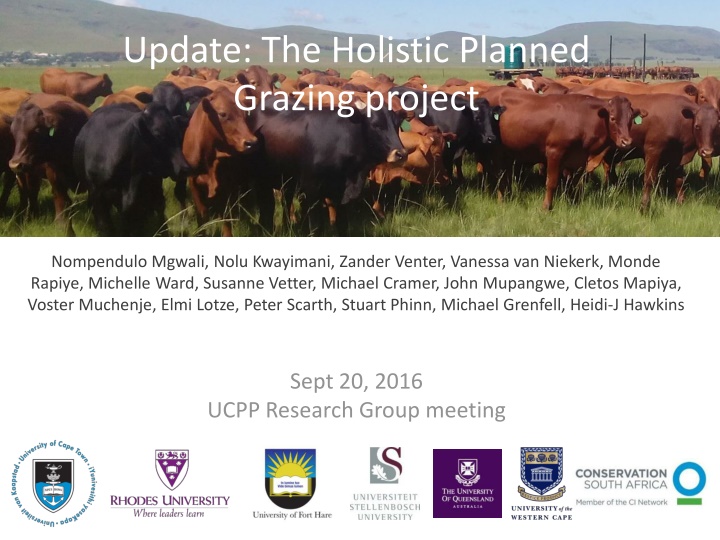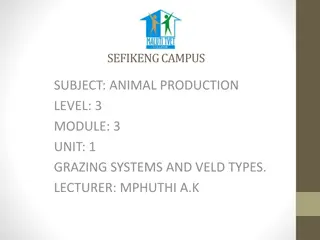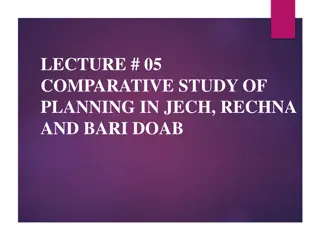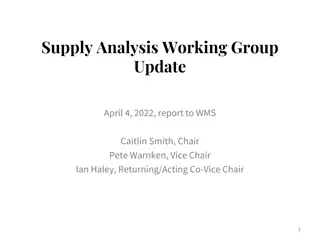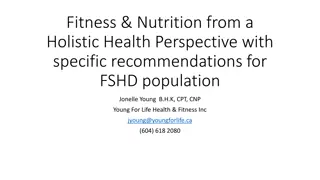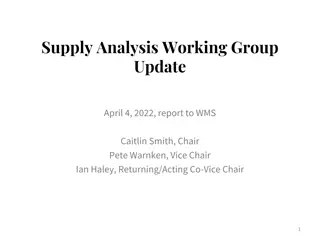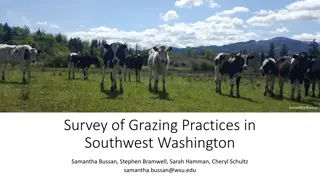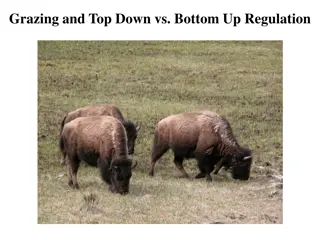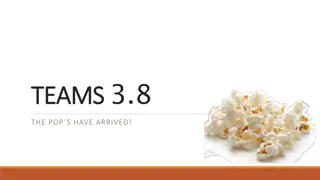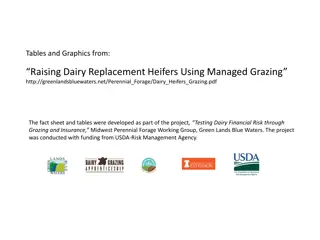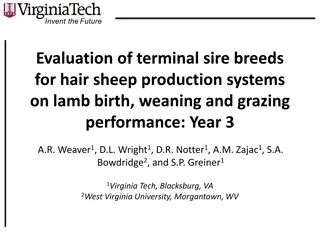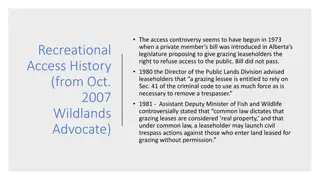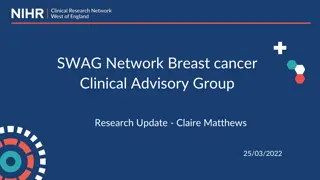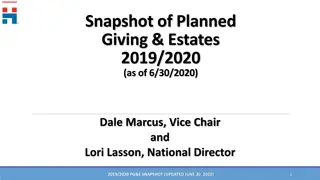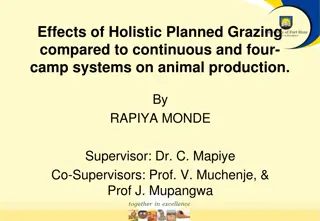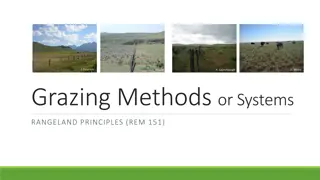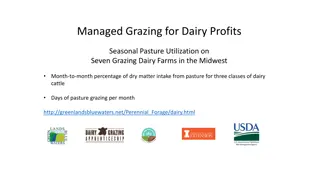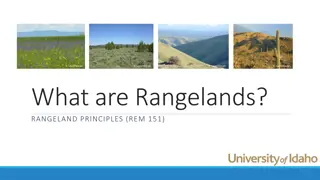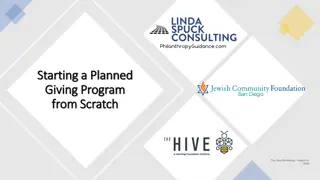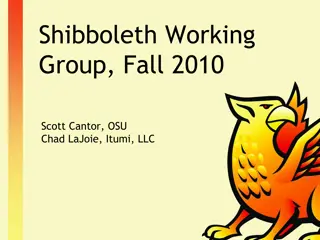Update on Holistic Planned Grazing Project - UCPP Research Group Meeting
Comprehensive overview of the research conducted by the UCPP Research Group on the Holistic Planned Grazing project, addressing the impact on forage utilization, soil hydrology, biodiversity, and restoration across different climates.
Download Presentation

Please find below an Image/Link to download the presentation.
The content on the website is provided AS IS for your information and personal use only. It may not be sold, licensed, or shared on other websites without obtaining consent from the author.If you encounter any issues during the download, it is possible that the publisher has removed the file from their server.
You are allowed to download the files provided on this website for personal or commercial use, subject to the condition that they are used lawfully. All files are the property of their respective owners.
The content on the website is provided AS IS for your information and personal use only. It may not be sold, licensed, or shared on other websites without obtaining consent from the author.
E N D
Presentation Transcript
Update: The Holistic Planned Grazing project Nompendulo Mgwali, Nolu Kwayimani, Zander Venter, Vanessa van Niekerk, Monde Rapiye, Michelle Ward, Susanne Vetter, Michael Cramer, John Mupangwe, Cletos Mapiya, Voster Muchenje, Elmi Lotze, Peter Scarth, Stuart Phinn, Michael Grenfell, Heidi-J Hawkins Sept 20, 2016 UCPP Research Group meeting
uMzimvubu: Water & grazing ecosystem services under threat
Land use pressures identified by communities, NGOs and government
Natural Resource Management Activites: AIP clearing Planned grazing /herders Mabuela Kraaling Wards 7, 14, 21
Research feeds into Communal landowner practices Private landowner practices Meat Naturally Pty
Holistic Planned Grazing and similar intensive approaches advocate high livestock densities and long recovery periods and assume this mimics natural behavior (e.g. migration)
Diagram summarising the mechanisms by which Holistic Planned Grazing is claimed to benefit overall rangeland productivity.
The HPG research group A global review1 showed that intensive grazing makes no difference to production but possibly reduces selective grazing depending on the climatic area Thus our research addresses gaps: If and how HPG increases forage utilization Effects on soil hydrology, carbon, biodiversity Usefulness as a restoration tool Effect across a climate gradient 1 Hawkins H-J 2016 Does intensive grazing work in native rangelands. African J Range and Forage Science (submitted)
Main results so far: communal lands Motseng: HPG Moiketsi: Cont. Michelle Ward, MSc. University of Queensland
Main results so far: communal lands 16 14 12 10 8 6 4 2 0 Nompendulo Mgwali, MSc. Rhodes University
Main results so far: experimental farm p = 0.747891 Soil Infiltration Continuous 4-Camp Holistic Vanessa van Niekerk, MSc. Stellenbosch University
Main results so far: experimental farm Continuous grazing Holistic grazing 4-camp grazing De-trended NDVI values for Merino Walk after each treatment had undergone the same number of grazing days: more standing biomass left after the growing season with holistic grazing reason? Zander Venter, PhD. University of Cape Town
Results so far: experimental farm Zander Venter, PhD. University of Cape Town
Results so far: experimental farm Zander Venter, PhD. University of Cape Town
Results so far: experimental farm Monde Rapiye, MSc. University of Fort Hare
Communication 2 student posters at 51st GSSA, Wilderness Project lead invited to be Editor in Chief for special edition on holistic grazing 1 global review presentation at International Rangeland Conference, Saskatoon, Canada 3 articles in Farmers Weekly 1 global review article submitted to African Journal of Range and Forage Science
Acknowledgements to funders and whole research group
Questions? More info: Heidi Hawkins hhawkins@conservation.org heidi-jane.hawkins@uct.ac.za Cell: +27 744790609 @ariseoharjuna
